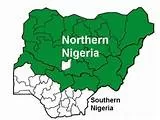
EVEN THE NORTH IS WAKING UP TO PETER OBI’S RISING POPULARITY – BUHARI’S FORMER AIDE, BASHIR AHMAD
In a surprising twist that signals shifting political sentiments, Bashir Ahmad, former digital communications aide to ex-President Muhammadu Buhari, has publicly acknowledged the rising popularity of Labour Party’s 2023 presidential candidate, Peter Obi, in Northern Nigeria.
Responding to a tweet by Mallam Jabir, who described claims that Obi is unknown in the region as “delusional,” Ahmad admitted, “Honestly, events and realities are pushing more people to know about him.”
The statement, made on Monday, August 4, 2025, has since sparked widespread reactions across political and social media spaces.
Honestly, events and realities are pushing more people to know about him.
— Bashir Ahmad, OON (@BashirAhmaad) August 4, 2025
Ahmad’s remark, coming from a prominent figure affiliated with the ruling All Progressives Congress (APC), is being interpreted by observers as a rare moment of candor and possibly a sign of internal awareness of Obi’s expanding reach.
His comment contrasts with that of Minister Festus Keyamo, who on the same day dismissed Obi’s influence during an interview on Channels Television, underscoring growing ideological tensions within the APC.
Obi’s growing recognition in the North is not without context. Economic frustrations, particularly around inflation and poor infrastructure, have deepened disillusionment with the status quo.
According to a 2023 Afrobarometer survey, 58% of Nigerians—including many from Northern regions—prioritize economic competence over party loyalty.
Twitter users have echoed this sentiment, with voices like Tèmítọ́pẹ́ describing Obi’s appeal as spreading “like wildfire” and others noting increased political discourse around him among Northern Nigerians.
Peter Obi’s reputation for frugality and accountability—hallmarks of his “Obidient” movement—appears to be resonating in a region once considered a stronghold of the APC.
With less than two years to the 2027 general elections, Ahmad’s public admission may hint at a subtle but significant realignment of political loyalties, as more Northerners look beyond traditional party lines in search of alternative leadership.
 Premium News
Premium News